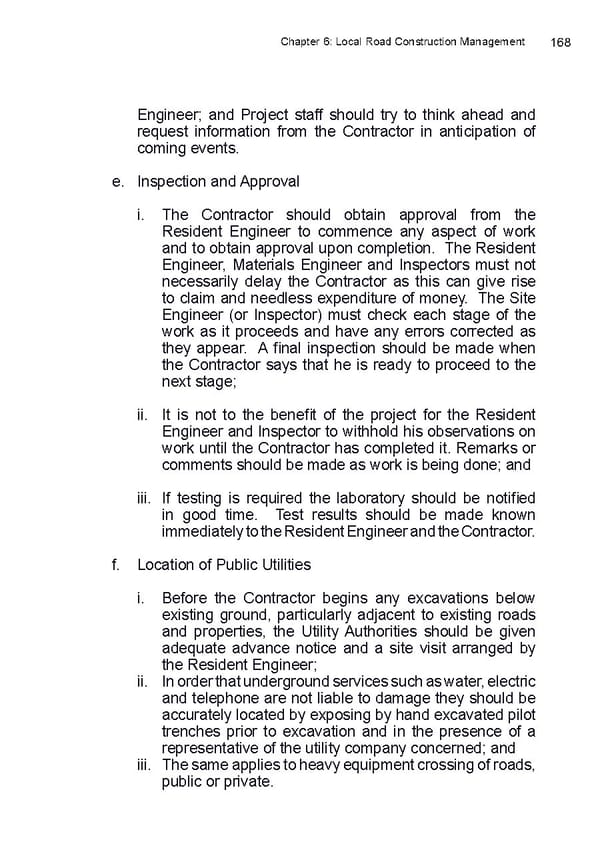Chapter 6: Local Road Construction Management 168 Engineer; and Project staff should try to think ahead and request information from the Contractor in anticipation of coming events. e. Inspection and Approval i. The Contractor should obtain approval from the Resident Engineer to commence any aspect of work and to obtain approval upon completion. The Resident Engineer, Materials Engineer and Inspectors must not necessarily delay the Contractor as this can give rise to claim and needless expenditure of money. The Site Engineer (or Inspector) must check each stage of the work as it proceeds and have any errors corrected as they appear. A ifnal inspection should be made when the Contractor says that he is ready to proceed to the next stage; ii. It is not to the beneift of the project for the Resident Engineer and Inspector to withhold his observations on work until the Contractor has completed it. Remarks or comments should be made as work is being done; and iii. If testing is required the laboratory should be notiifed in good time. Test results should be made known immediately to the Resident Engineer and the Contractor. f. Location of Public Utilities i. Before the Contractor begins any excavations below existing ground, particularly adjacent to existing roads and properties, the Utility Authorities should be given adequate advance notice and a site visit arranged by the Resident Engineer; ii. In order that underground services such as water, electric and telephone are not liable to damage they should be accurately located by exposing by hand excavated pilot trenches prior to excavation and in the presence of a representative of the utility company concerned; and iii. The same applies to heavy equipment crossing of roads, public or private.
 LRM Manual CMGP Page 167 Page 169
LRM Manual CMGP Page 167 Page 169